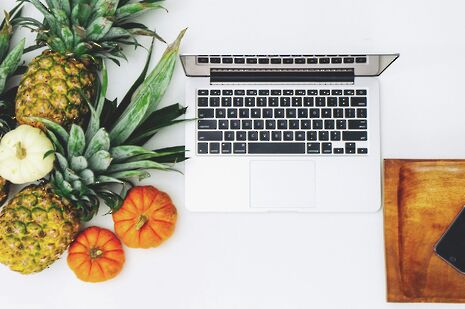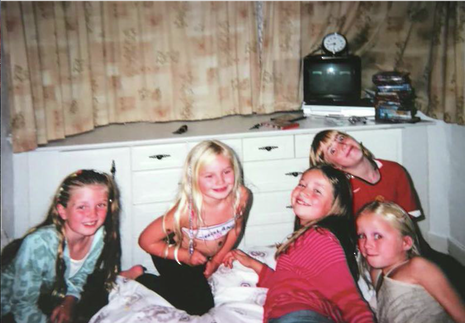
Does this sound too crazy?
An upfront and honest look at mental health and anxiety from EH

“Do you have anxiety or something?”
A pretty fair question to ask, as I was crying somewhat hysterically for apparently no reason. A really bad time to ask (or to do the crying, depending on your perspective). Third time (and it would be last) I’d met them, in a compromising, now quite damp, situation. Not the best environment to discuss mental health.
I’ve had problems with my brain for quite a while now, mainly based around control. When I was younger, eating, initially in restaurants, made me supremely anxious. Food is still something I never want to confront if I’m already feeling on edge. Any time my little sister got told off I’d feel like I might be sick. As I got older, I’d bite my nails until they bled, a habit I still slip into now when I’m nervous.
"As I got older, I’d bite my nails until they bled, a habit I still slip into now when I’m nervous"
Then I started my last year of A Levels and it was like an avalanche. I convinced myself it was my exams that were making me unable to do any less than thirteen hours of work a day. My exams that were keeping me from sleeping. My exams that made me have panic attacks that meant I couldn’t move or speak or breathe.
I had to stop sleeping with my curtains closed because it felt like the room was pressing in on me. Then I could see the sky at night.
I would look at it during some of my worst panic attacks and think I honestly could not live on this planet any longer, because the sky at night was going to fall in on me
Bit too poetic, maybe, but I couldn’t stand the crushing weight of the darkness.
Then my exams were over and none of it stopped. It got worse, actually, because I was now conscious – and so, naturally, anxious – that I had a problem. I still had my driving test to do. I returned from a session of trying to reverse round corners. I had a panic attack. Reversing round corners became the new A Levels, but clearly much more important and worse, because now I was having at least one panic attack a day.

After he’d taken me out for a drive, I was sat on our sofa crying my heart out in front of my very concerned dad, telling him how much I did not want to get help, because if I get help, I need help. If I get help, there is something wrong with me.
He told me that there is nothing wrong with me. Some people need more help dealing with life than other people, and that’s fine. It was probably the most helpful thing anybody has ever said.
So, there had been flutterings of a broken brain from when I was seven years old, August 23rd 2005. It wasn’t until I was just over a month away from being eighteen, July 18th 2016, that I went to see a doctor about it.
That was far too late. Not going to see somebody as soon as I was old enough to realise I wasn’t just a nervy child is one of my biggest regrets. I was very unhappy for a very long time, and I didn’t have to be.
And I don’t want to start ranking the way people deal with their mental health at all, but my experiences of it have been comparatively light. I’ve never been put on medication. I go through sometimes quite extended periods of feeling basically fine.
And it’s good to be in a basically fine place. It doesn’t make you any more dramatic, or any less sane. I wondered for ages if I was normal enough for other people. Of course I am. Everybody is if you find the right ones.
What I’ve found the hardest about having a brain that needs help with life is that it’s never going to be fully able to walk on its own. I just wanted it gone. I didn’t want it manageable, I don’t want to be managing. I hate that some mornings I wake up with my legs and arms feeling familiarly, sickeningly heavy and I know it will be one of those days.
Mental illness is tough on every person who encounters it. I find it distressing and exhausting. I know everyone who comes across me on a bad day finds it at best confusing, at worst terrifying. Nobody knows how to make somebody feel better, because, honestly, you can’t. Thinking that you can, or could or should be able to, is really detrimental, to them and you.
Cambridge is a place where it can feel especially hard to take care of yourself. I don’t know how many essays are between me and my next meltdown, but with every one I do I can feel it getting closer. Every time I start another wodge of reading on the historiography of post-colonial development, I don’t want to do it any more.
Mental health days are a blessing, especially in somewhere like Cambridge. Being able to give yourself time off and be kind to yourself is an important skill to develop. It’s so hard to learn. But the alternative is harder.

